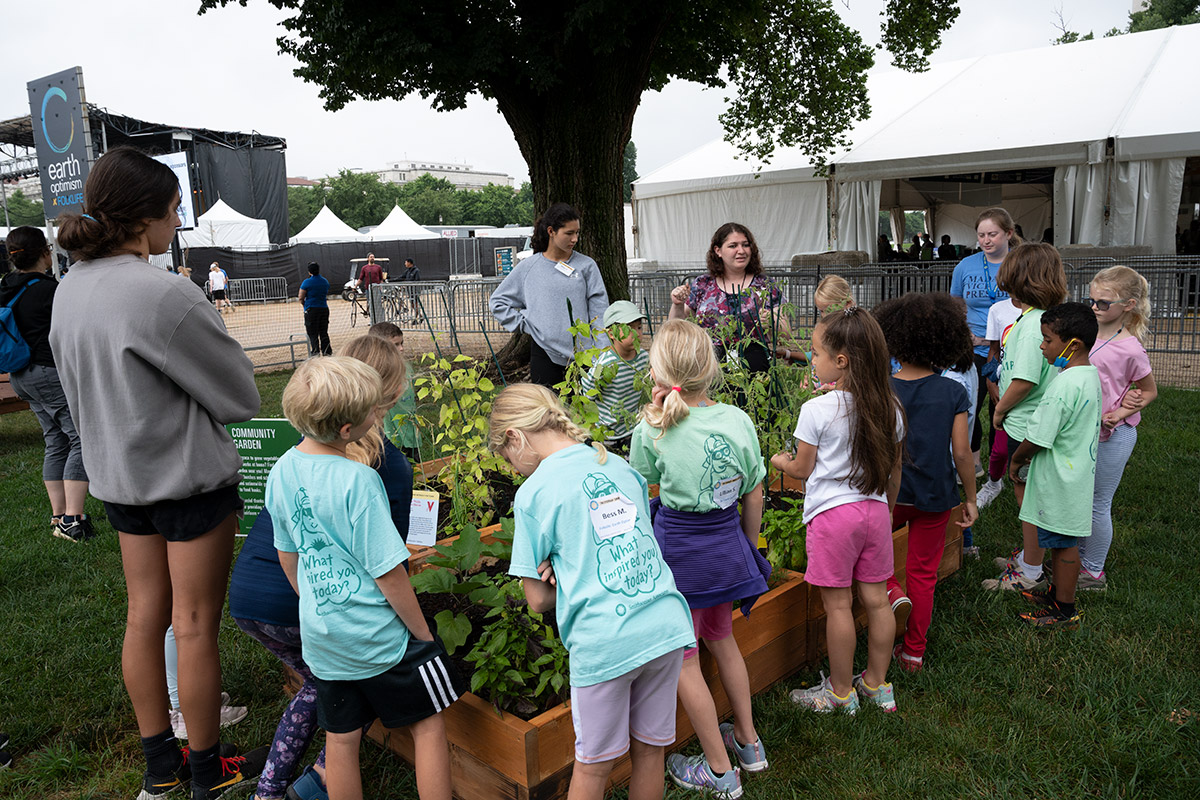How I Spent My Summer Internship: With 1,500 Worms

Photo by SuSanA Secretariat, Flickr Creative Commons
I’m betting not many people have the distinction of getting introduced on the first day of their summer internship as “Worm Girl.” And, in their lifetimes, most will not have the opportunity to hold a bag of approximately 1,500 worms.
How did I get here?
At our first Earth Optimism × Folklife intern team meeting, there was the classic introduction circle, and I was introduced as the expert on worms. A few days before, I had spoken with our supervisor, program curator Betty Belanus, about populating a vermiculture compost area at the Smithsonian Folklife Festival, showing visitors how they could make their own backyards or shared spaces more eco-friendly. Apparently, I showed more enthusiasm for composting and worms than I realized, and now I was the intern in charge of the worm project.
Just one problem: I knew very little about worms.
But, not wanting to disappoint our fearless leader, I started researching worms with a vengeance. I was determined to embrace the role of Worm Girl, finding worm facts, enthusiasts, and experts online. I grew fascinated. Did you know that worms have taste buds on their skin and have favorite foods? That they lack eyes but can sense sunlight? I started to find them endearing, even cute. I learned everything I could about the proper way to set up a vermicomposting system until I felt prepared for my duties as the “worm overseer” at the Festival.
The day the worms arrived at the Festival grounds was the happiest and most excited I had been all summer. For several days, they had endured a perilous journey around town in an Amazon Prime truck, blocked from the National Mall by the Something in the Water music festival the weekend before our own. (And, yes, you can order live worms online!) But they were finally here, and alive and well—with another slight snag. Their home, the Worm Theater, had not yet been completed. My little guys would have to live in a big ceramic bowl for the next several days, under my constant scrutiny and worries about what possible dangers could befall them overnight.
Finally, on the third day of the Festival, the Worm Theater arrived. After a few tense moments of prepping the space with a mesh bottom, cardboard lining, soil, a few compost scraps, and some moisture, I carefully deposited 1,500 “red wiggler” worms so they could burrow and eat to their hearts’ content. (Red wigglers have five hearts, by the way.)


I was surprised by how interested visitors were in these worms and how quickly the worms ate the bits of fruit, vegetables, and other organic matter given to them. Throughout the Festival, my squirmy charges thrived, and afterward the healthy worms were set free in a garden to continue their important work. I will never take the little worm, or what it has to offer our earth, for granted again.
What did I learn from this close encounter with the red wigglers? Other than all the facts about worms, I learned that you never know what fun skills you will develop when you begin a new job and that you should keep yourself open to all of them. This opportunity at the Center for Folklife and Cultural Heritage was amazing, but, as our supervisor was fond of reminding us, “other duties as assigned” is the watchword of any position at the Smithsonian. I showed up as an American history major with a dream of working in museums and discovered a new passion.
When you are passionate about something, no matter how squirmy or gross it can be, your excitement will spill over to others. If your eyes light up and a smile comes to your face, even strangers (in this case, Festival visitors of all ages, but especially kids) will want to listen. I was so excited to talk about the worms, and others became excited to hear about them. Sometimes all it takes is the right place and time, and you can start something new for someone else by sharing your passion. Multiple children expressed being more excited about science after hearing about worms, and several showed interest in setting up their own vermicompost centers. But I would be happy if they just recognized a worm and its usefulness in their backyard the next time they saw one.
At every internship, I try to find my “worms.” At my last internship, I learned an obscure musical instrument (concertina), and it opened a whole new world for me to explore. When I stepped out of my immediate sphere of knowledge, I learned something that brought extra joy to this project, and I left the internship experience even more well-rounded than when I entered.
At every new opportunity, you can learn what was expected, but you can also deep dive into a topic that will add wonder to your life. Find your worms.

Rosie Cohen is an intern with the Earth Optimism × Folklife program and a student at Clark University, where she majors in American history, with a concentration in law and society and a minor in theater arts. She plans to pursue a career in museum education.

